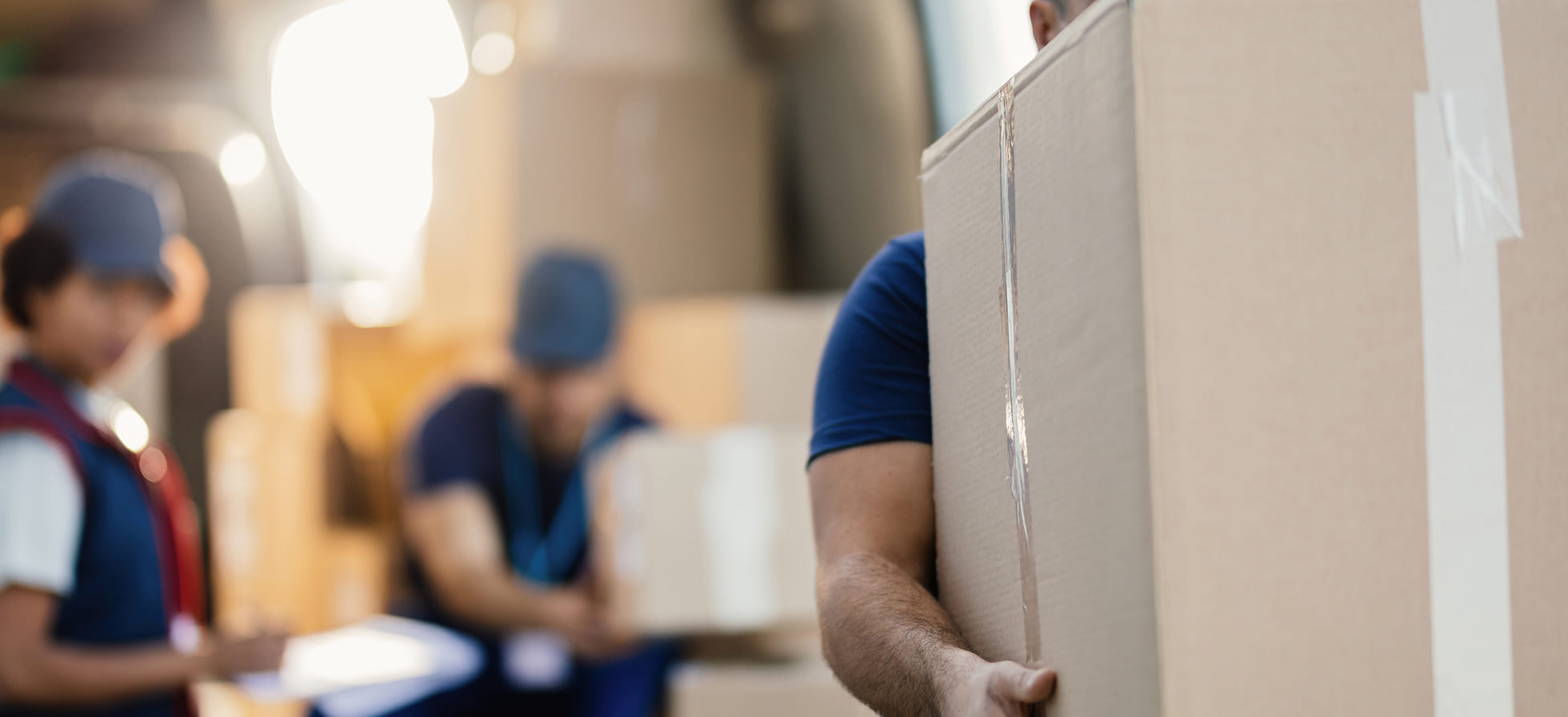Moving to a New City: 6 Tips to Help You Find Your Way
Moving to a new city presents an incredible range of opportunities and challenges. On the one hand, there’s that incredible sense of freedom that comes with moving to a new place—especially if you don’t know anyone at all. Sure, you’ll start to feel a bit lonely eventually, but in the meantime, you get to enjoy that truly intoxicating sense that you can do anything—and be anyone. You start to fantasize a little bit about personal reinvention—a totally clean slate—and living life in the way you’d always dreamed.
Of course, for most of us, this is rarely the reality. We generally end up doing pretty much the same thing we were doing before we moved—just in a different place. We have an opportunity to change, but we don’t take it, and then in no time we’re back to the same old habits we’d once hoped to leave behind.
Is there any way to avoid this sort of thing? Can we force ourselves to make the most of the opportunities for personal transformation that moving offers us? Can we break free of our past mistakes?
We definitely can! And to prove it, we offer here a collection of tips and insights that are tailor-made to help you maximize the opportunities that come when you move to a new place.
Just to be clear, these tips have nothing to do with the moving process itself—like how to pack properly, how to stay under your moving budget, or how to get a 300-pound sofa down four flights of narrow stairs and into a moving van. That’s been done, and—as far as I know—there’s nothing new to report. (I think it’s safe to conclude that it’s just as awkward and painful as it’s always been).
The list also avoids the basics, like changing your mailing address at the post office, or, if necessary, getting a new driver’s license. This list is more about the decisions you should make after you move to a new and different city—decisions about how to approach life and how to spend your time so that you get as much as possible out of your new residence.
By the way, these tips apply to all cities, not just those inside the United States.
They’re just as relevant if you’re moving from Montreal to Madrid (and you need to get over a bit of culture shock) as they are if you’re moving from Austin to New York. In fact, many of them apply even more—for reasons that we outline below.
You may look at some of these insights and think to yourself, “That’s just common sense,” but the truth is, common sense isn’t as common as we often like to pretend it is. Sometimes we need to be reminded of what it takes to survive—and thrive—in a new environment. We have to get out of ourselves a little bit and be open to experience, and that’s something this list makes a special point of emphasizing.
So here we go:
Tip #1 – Find a Job That Gets You Out of the House
First, whenever you decide to dip your toe in the local job market, try to avoid getting a new job that turns you into a remote worker. I know, I know – working from home is the dream of many, but I can tell you from personal experience, that spending three-quarters of the day in your pajamas or bathrobe and trying to stay focused in the face of endless distractions isn’t easy.
And here’s the thing: when you’re in a new city, and everything around you is unfamiliar, there’s a real benefit to getting out of the house every day, becoming familiar with all the different streets and neighborhoods around you, getting a sense of how things are done, and coming face-to-face with—and talking to—real-life humans.
The simple truth is, though people everywhere say they hate going to work, most people want to make friends at work, or, at the very least, some solid acquaintances they can call on if they need help. It’s good to have such people in your life, and one of the best ways to meet them is to work beside them. You can’t work with them from your studio apartment, so focus on getting out into the world and doing something productive at a place that is not your own home.
You’ll thank yourself for this.
As a remote worker myself, I can assure you: that it’s not all it’s cracked up to be. I’m actually jealous of people who work closely with others. They may express their opinion that they’re slaves to the grind, but the reality is, that they’re staying connected to the world around them, keeping their social skills sharp, and learning a ton—directly and indirectly—about the city they live in. Digital nomads are loath to admit it, but their work tends to isolate them from other people (which is why so many of them take root in the world’s cafes).
In short—even if you don’t necessarily want to, find work that forces you to interact with others. It truly is one the best ways to acclimate—fast. And if you’ve just moved to a city where people speak an entirely different language, nothing beats mixing it up and chatting up others at the water cooler if you want to become fluent. Sooner than you think you’ll be cracking jokes and making dates for coffee.
Read Here: Relocating Yourself vs Hiring a Mover
Tip #2: Consider the Benefits of Roommates or Housemates
Here’s something else worth pondering. If you’re single and you find yourself in a new city, alone, consider the benefits of living with others, even if you’re well past your college years. With the explosion in home prices and rental rates in recent years, sharing living space—especially in desirable, upscale areas—has become far more common than many people realize, and there are lots of ways to combine the benefits of privacy WITH the financial benefits of sharing (like living on separate floors, for example, or looking for a unit in a shared house or condo that has a separate entrance).
Like the benefits of working outside of home, living in a place that forces you to interact with others can be a major plus if you want to start feeling comfortable in your new city and enjoy it to the fullest extent possible. You’ll have people handy who’ll always be up for a good chat and keen to share what they know.
And maybe—if you become friends with your housemates—you can start socializing with them and meet still other people through them, which will help you feel settled in no time.
Also, in sectors like IT, sales, and the service sector, housemates are often excellent sources of information about potential employment opportunities. In some cases, a good roommate or housemate not only helps pay the rent, or she gets you the inside line on an upcoming job opening!
The reality is, that most people arrive in a new city and immediately rent their own house, apartment, or suite, and then find themselves living in a way that makes it hard for them to meet and interact with other people. So think seriously about co-living. Done right, it has an enormous upside.
Read Here: The best state economies of the year
Tip #3: Embrace Social Media
As soon as you move to a new city, take some time to explore all the Facebook communities you can, in relation to any interest or goal you may have. It doesn’t matter what is—as long as it’s something that interests YOU and, hopefully, others.
Facebook has been “uncool” for years, and it’s definitely given ground to new, hipper platforms more popular with young people. The reality, however, is that Facebook is still the most widely-used social media platform in the world, especially among those keen on group activities and meet-ups of every kind. It’s still one of the best ways for like-minded people to find one another in an urban setting, and it offers a wealth of knowledge about the city you’re living in, employment openings, property rentals, recreational opportunities, social events, meet-ups, or whatever it might be. Don’t be aloof. Get involved and stay involved and use Facebook groups to help you.
If you don’t develop lasting friendships as a result, you’ll at least develop networks of interesting people who can help you in all sorts of ways.
There’s also this to consider: it’s a very small world, and there’s a very good chance you have more connections to the people in your new city than you realize. Ask your friends and family members, wherever they are, if they know anyone in your current city of residence. Scour platforms like LinkedIn, X, Instagram, or whatever other social media you may be using, to find out who from your social network—or your extended social network—makes their home in the same city as you. You might be surprised at what you discover. It could be an old high school flame—or maybe an old boss. Or maybe a friend you lost track of years before. Prepare to be amazed!
Read Here: The best small cities in the US to relocate to
Tip #4: Do Stuff!
Do stuff! Be a “joiner.” This tip follows directly from the social media recommendation. Make sure that your social media usage leads to increased engagement with real-life human beings and a more active personal life. That’s the whole point after all. Don’t let Facebook or Instagram interfere with your actual social life. Instead, use these platforms to improve your social life and maximize your chances of spending time with interesting human beings.
Often, after moving to a new city, people turn to heavy social media use to stay connected to their old networks of friends and family. That’s great. Your family and old friends are incredibly important, and they’re definitely missing you. They’re your traditional support system and you don’t want to neglect them in any way, or—in the case of old friends—forget about them. And it’s also incredibly reassuring to be able to touch base with people you’ve known for years–or your entire life. It’s comforting.
But even so, remember to detach yourself from your devices. Focus intently on the pleasure that comes from meeting people in real life, in the place you’re living. That’s what life is about.
As the saying goes, “Put yourself out there.” Join others. Go out of your way to engage with people in your community. Consciously take chances and push yourself out of your comfort zone, even if it’s uncomfortable. Go to that talk or concert—even if you’re alone. Attend local events, join sports teams, volunteer for nonprofits, and make dates for coffee.
The last one is a bit tough, because as every human being on planet Earth knows only too well—whether they’re 5 or 85—“neediness” isn’t exactly a trait that’s in high demand. People sense it and almost always do their darndest to avoid it. Nevertheless, if you’re persistent—and not too needy—you’ll eventually encounter friendly types who’ll be only too happy to make you part of whatever they’re busy with.
Read Here: 7 Hot Second Home Markets of the Year
Speaking personally, I met a ton of people when I joined a casual soccer league after moving to San Diego. Some of these people became very good friends. The best thing about this approach is that it’s a great way to meet new people without having to be explicit about your intent. If you go to a singles bar, your intent is pretty easy to spot; if you join a soccer league, the first assumption most people make about you is that you’re someone who really likes soccer. Your real objectives are tougher to identify. And given that sports leagues always need warm bodies, you’ll find yourself on a field, rink, or court (or in a pool) in no time, making friends fast and having a great time as you do it.
Tip #5: Practice Being More Self-Reliant
This is an important one. While you want to reach out and make new friends and develop new support networks, you also have to face reality a little bit. You’re in a place that just isn’t the same as the place you left—a place where you may never have the same number of connections you had before. But that’s OK. Hundreds of millions of people all around the world are in exactly the same boat, living in places they don’t know well, whether for work, for school, for a new relationship, or whatever it might be. In the United States alone, roughly 30 million Americans move every year.
So work on yourself. Stay positive. Be confident. Read. Indulge your interests and passions—on your own.
It’s a cliché, but it’s also true: don’t look for validation from others. Carve out your own path. New friendships and other types of relationships, which obviously enhance life in so many ways, will come in time. But in the meantime, work on personal growth and increasing self-confidence and self-reliance.
And give yourself at least a year to get acclimated. Don’t make any hasty judgments about whether your move was wise or foolish until at least a year in. When in doubt, remind yourself that you’re in a transition phase, that moving to a new place is hard, and that you can’t really judge any aspect of a permanent move until at least a year in.
This approach is guaranteed to safeguard your mental health and your general well-being.
I personally remember moving to a new city and feeling quite isolated for the first eight months—ruminating often on the idea that I had made a big mistake. Then I finally got a job as a writer and began interacting more with other company employees and people in general and everything changed for me after that. If I’d left after 7 months or made some definitive life-altering judgment after 7 months, it would have been a terrible mistake. We all need time to get adjusted to a new situation and it’s perfectly normal to feel like a fish out of water for a while. Hang tight—it’ll get better. And in the meantime, stay busy!
Tip #6: Set Goals and Measure Your Results
One practice that’s extremely helpful if you move to a new city and find yourself a bit at sea is to set goals—and stick to the plan! Move forward with a purpose. Stay proactive. Promise yourself that you’re going to spend THIS MUCH time meeting new people, or THIS MUCH time getting to know the local neighborhoods or THIS ENTIRE DAY exploring possible social outings on Facebook. Be disciplined, keep a journal, and actively measure your progress over the days, weeks, and months as they roll by.
After a few months, look back at your earlier journal entries and take stock of what you’ve achieved and where you’ve fallen short. If you’ve moved to a new city where English isn’t the local language, assess your progress in becoming fluent in the local language. Think about where you’re living, what you’re doing for work, and how you’re spending your time.
Think about the people you’ve met–and maybe the sort of people you still _want to meet. Could you be more productive? Could you be living in a place (for the same or a similar amount of money) where you’d be happier? Would you be happier in a different job, with different co-workers?_
One of the keys to avoiding getting stuck in a rut—and making the progress in life you want to make—is to actively reflect on where you are in your journey and how you got there. Don’t beat yourself up if you’ve wasted some time (everybody does!). Moving to a new city is difficult, after all, and everybody deserves some “time off” to do nothing at all, watch some Netflix and vegetate. But don’t make that a habit. Stay engaged and energized and keep trying to reach the goals you’ve set for yourself.
International Van Lines (IVL)

The World’s Best International Moving Company
International Van Lines (IVL) is the world’s premier long-distance and international moving company. The IVL advantage? Simple. We’ve got the infrastructure, the personnel, and the experience. No other mover can match what we do.
Whether you’re moving to the other side of the street or the other side of the planet, we guarantee a smooth, predictable, and stress-free moving experience. Believe us when we say: you’ll never regret choosing IVL over all other moving companies. We guarantee that your personal possessions will arrive on time, on budget, and in pristine condition.
Based in Coral Springs, Florida, but now serving over 180 different countries worldwide, IVL’s reputation for excellence continues to grow. Over the past 25 years, we’ve mastered every aspect of full-service door-to-door relocation. No other long-distance mover does it better.
IVL relies on the following transport methods: air freight, ocean freight, and our enormous and growing fleet of high-end moving vans and trucks.
We also offer our customers a wide variety of storage services (see below), so whatever your plans may be upon arrival at your new home, we’ve got you covered.
Click Here for Your Free Long-Distance Moving Quote Today!

IVL founder and CEO Josh Morales
To get your free long-distance moving quote online, and for easy access to all the moving info you’ll ever need, head on over to our website. If you’d like to speak to an IVL team member directly, call us any time at 855-227-5698. We’re always happy to assist existing and would-be customers with their long-distance moving needs.
IVL TRUCK
Our Services
As a full-service mover, IVL offers comprehensive services that are door-to-door and encompass every aspect of the moving process. Here’s a brief overview of what we offer:
- Comprehensive packing and unpacking services**
- Furniture assembly and disassembly.
- Personalized services for high-value and/or fragile items, including art and antiques and important documents.
- Transport via ocean and/or air freight, as well as via our fleet of high-end moving trucks and vans.
- Debris pickup.
- Vehicle transport, domestic or international.
- Varied storage services (short-term, long-term, standard, climate-controlled).
- Full customs clearance management
- Insurance coverage provides basic moving protection; full value protection available for purchase.
- Full corporate and military relocation services.
- Live chat and customer service 24/7.
- Easy, real-time shipment tracking.
How Much Does IVL Charge?

IVL team members at company HQ in Coral Springs, FL
To get a firm grasp of what IVL charges, we recommend you do one, or both, of the following:
Try Our Online Moving Cost Calculator before moving to a new city
Take a few minutes to check out our online relocation cost calculator, AI-driven and reflective of up-to-date fuel costs and other expenses, to get a solid feel for what your move is likely to cost. When requesting a moving quote from IVL, be sure to provide your move details in full, including your destination zip code, to ensure the most accurate quote possible.
moving cost to Rotterdam
Contact IVL Directly
Sometimes it’s impossible to explain the unique circumstances of a move using an app alone. In such cases, feel free to contact IVL directly for a much more detailed quote based on your specific circumstances. Remember: understanding the variable nature of moving costs is crucial to avoiding confusion and disappointment. In some instances, rough estimates may differ slightly from the final bill you receive.
Under all circumstances, however—from charges and fees to logistics and tracking—IVL is fully transparent with you, the customer. At the end of the day, it’s your opinion that matters to us—no one else’s.
For Your Free Long-Distance Moving Quote, Click Here!
Best Countries to Retire
Is There Anything Else I Should Know?

An IVL mover in action!
Partnerships
To promote the speed and efficiency of your move, IVL, like many movers, may choose to partner with one or more local moving companies at certain points of the moving process—the final stages in particular.
Fees and Charges when moving to a new city
There is also a 25 percent deposit required to reserve a moving date. The balance is then split into two separate payments: 50 percent on moving day, and the remainder upon delivery. The deposit can be made using a credit card, check, or ACH.
Cancellation Policy
The initial deposit is refundable in the event of cancellation. However, given the complex and time-consuming logistical arrangements that international moves require, deposits and fees collected for such moves are not refundable in the event of cancellation.
Is IVL Fully Licensed?
Yes. Per federal requirements regarding proper licensing, IVL is licensed by DOT, FMC, and AMSA (the latter having been recently absorbed by ATA).




